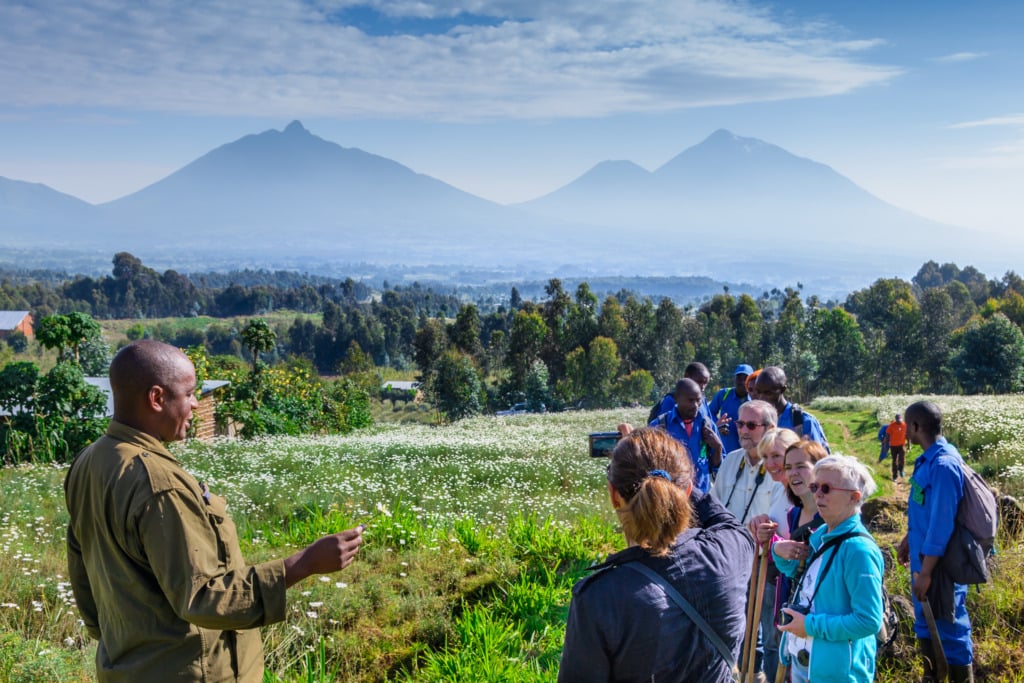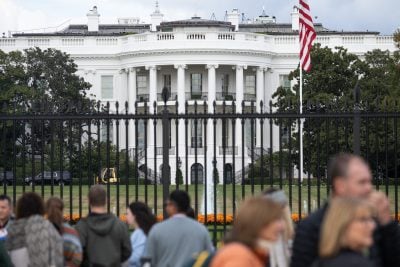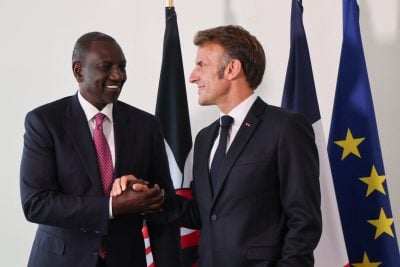For many years, Rwanda has been a darling of the donor community: a country where human development metrics were on the rise, supported by enviable economic growth rates and an ambitious government keen to promote itself as an exemplar and a regional leader.
But critics worried that its state-driven model of growth would ultimately prove limited. They feared that the country’s small size – it has just 13m people – could limit growth, and that building on its initial rapid economic expansion from a low base would become ever more difficult.
Lastly, they contended that state-driven development is limited by its nature and that at some point the private sector would need to flourish if Rwanda is to truly succeed.
Despite a difficult past couple of years – the pandemic saw the economy contract by 3.4% in 2020 – Rwanda remains a country on the move.
Having rolled with the Covid-19 pandemic’s punches, double-digit growth of 10.2% for 2021 could be on the cards when Q4 figures are delivered this month, while the country is set to deliver 7% growth this year according to the IMF.
A society that just a generation ago was tearing itself apart in one of history’s bloodiest displays of division is now working towards a shared purpose with the zeal of the convert.
At the heart of Rwanda’s model to date have been ambitious long-term plans, and the government has hitherto attributed many of the economic advances to its Vision 2020 plan, which successfully harvested much of Rwanda’s low-hanging fruit, in everything from internet connectivity to healthcare, over the past two decades.
Under the plan, the administration of President Paul Kagame, in power since 2000, has focused investments in priority areas that maximise the benefits to businesses and the broader population.
At the heart of the country’s approach has been a raft of pro-business policies, which helped Rwanda to rise to 29th place in the World Bank’s 2019 Ease of Doing Business index, the second best in Africa after Mauritius. Indeed, the successful adoption of economic plans has driven development indicators.
Rwandan life expectancy increased from 49 to 66.6 between 2000 and 2017, while extreme poverty fell from 40% to 16%. From 2014 to 2019, average economic growth was 9.2%, reaching 10.2% in Q4 2019, before contracting in the wake of the Covid-19 pandemic.
But as the country recovers from the pandemic era, it is targeting ambitious plans amid a difficult global economic backdrop. By December, the government had surpassed the World Health Organisation’s target of over 40% of citizens fully vaccinated, but the pandemic has nevertheless exacerbated poverty, unemployment, and gender inequalities, according to the IMF, which warns that it risks reversing hard-won social and economic gains.
In a bid to counteract these impacts, the country is forging ahead with Vision 2050, which has laid out the objectives of making Rwanda a middle-income country by 2035 and a high-income one by 2050. Growth rates of up to 12% are targeted until 2035, levelling off to around 10% from 2036 to 2050.
The planned driver for the next phase of national growth will be the expansion of key areas of the economy, including agriculture, health, infrastructure, manufacturing, tourism, finance, education, energy, and the extensive use of technology in both government and business.
Drawing together these disparate ambitions is a grand plan to establish Rwanda as a laissez-faire proof-of-concept location where innovative solutions are developed before being exported to other parts of Africa. The hope is that this will overcome the challenge of Rwanda’s small domestic market and limited spending power by utilising its central location to offer investors access to markets across Africa.
“The first thing that investors are looking at is market size, and while the Rwandan market is not big, our geographical location makes us the perfect proof-of-concept test bed for all the larger markets around us,” says Diane Karusisi, CEO of the Bank of Kigali.
Prioritising education
With an average age of 19 and only 22% of its population above 35, Rwanda is one of the world’s youngest countries.
Rwandans’ interactions with the wider world are enriched by their multilingualism. The country’s official language, Kinyarwanda, has a large degree of commonality with the region’s other Bantu languages, and most Rwandans are also proficient in both French and English.
With an eye to the country’s future, the government has prioritised its education system. Under Vision 2020, 100% of both boys and girls were enrolled in the government’s free universal basic education scheme. Vision 2050 has set the target of broadening educational provision to include secondary and tertiary education with a focus on vocational skills, particularly relating to technology.
These ambitions extend across the region as Rwanda hopes to attract students and ideas from neighbouring countries to learn their trade in Rwanda, and then stick around to apply their skills in Rwandan startups.
Over the past couple of years, three universities have been built in Kigali Innovation City (KIC) to attract and develop the skills that Vision 2050 requires.
Spanning 61 hectares and located in the Kigali Economic Zone, the KIC was founded in 2021 to attract investors and contractors with incentives such as a slashed rate of corporate income tax (15% as opposed to 30%) and exemptions from import tax and VAT on ICT equipment.
The project is backed by Africa50, the African Development Bank’s infrastructure investment platform. It recently passed the development phase and is now mobilising financing to get buildings and infrastructure in place.
Boosting tech
Boosted by the Covid-19 pandemic, more and more public and private services are being automated and moved online. This is best demonstrated by Irembo’s e-governance platform, which provides Rwandans with access to hundreds of government services and is another example of private capital developing its service offering in Rwanda with a view to exporting it across Africa.
Yet these plans envisage a large financial commitment from government and lenders. Rwanda is hoping to plug that gap with the Kigali Financial Innovation Centre (KIFC), announced in December 2019, which has a mandate of transforming Rwanda into an international financial destination for investors seeking opportunities across the African continent.
In November 2021, the KIFC received a boost with the launch of the $250m Virunga Fund, whose anchor investors are the Qatar Investment Authority (QIA) and Rwanda Social Security Board (RSSB).
Another Rwandan financing initiative that has been drawing attention is the Green Fund, which aims to drive development of the country’s nascent solar power industry. Most of its energy consumption is met by hydropower, but to date, little has been done to harness the power of the ever-present equatorial sun.
As technological capabilities have grown, off-grid, small-scale solar energy is presenting a practical way of reaching the government’s goal of spreading electrification to 100% of Rwandans by 2024. The Green Fund is expediting the process by nurturing both supply and demand for solar panel installation in remote parts of the country.
Challenges for tourism
Reviving tourism, another focus area of the country, is likely to be more challenging in the pandemic era. In 2019, Rwanda registered its best ever year for tourism, netting $500m, the country’s biggest source of foreign currency, and registered $2.46bn of local and foreign investment.
Many visitors head to the Volcanoes National Park, one of the only places in world where visitors can see wild mountain gorillas.

The tourism industry was fuelled by an increase in the number of international airlines flying to Kigali in recent years, and a partnership between national carrier RwandAir and Qatar Airways.
Phase one of Bugesera Airport, which will be 60% owned by Qatar, is due to be completed in late 2022, at which point it will be able to handle over 1m passengers and 150m tonnes of cargo per year.
But since the Covid-19 pandemic sucked the wind out of the hospitality sector’s sails in 2020, hotels and tour companies have received government support in the form of subsidies and loan support.
While the industry had shown encouraging signs of organic recovery in 2021, the devastating emergence of Omicron dealt another blow to Africa’s struggling travel industry. Future variants could again place recovery in doubt.
Success in hosting events
That murky picture complicates Rwanda’s plans to gain a strong foothold in the MICE (meetings, incentives, conferencing, and exhibitions) industry. In 2019 Rwanda hosted the second-highest number of conferences of any country in Africa (after South Africa), with many delegates flocking to the 2016-built Kigali Conference Centre prior to the pandemic.
Yet the country’s recent focus on hosting high-profile international sports events, even during the pandemic, could help to assure visitors that the country is ready for the new era of safety-first tourism. The Ministry of Sport has the task of making Rwanda a leading contender to host major international sporting events.
“Hosting events is part of the strategy to attract investors by offering them an opportunity to find new client bases in new places,” Aurore Mimosa Munyangaju, Rwanda’s minister of sport, says. “We always make sure the private sector is informed of the opportunities that result from developments in sport.”
After successfully hosting the NBA/FIBA Basketball Africa League in May 2021, Kigali was booked to host both the men’s and women’s International Volleyball Championships in September 2021. It has since been announced as the host of the Ironman Triathlon (August 2022) and the Worldwide Cycling Championships (2025).
“By working with the tourism and infrastructure ministries, we have won the trust of international organisations for hosting big sporting events,” says the minister.
Large investments are being made in sporting infrastructure, including the upgrading of the Amahoro Stadium into a multipurpose arena that can host football, basketball, volleyball, tennis, and Paralympic competitions. Seating capacity will be boosted to 45,000.
The 24-month project is being undertaken by Turkish construction company SUMMA, which just two years ago completed the nearby Kigali Arena, the biggest indoor arena in East Africa.
Another aspect of Rwandan engagement with international sport is Visit Rwanda’s sponsorship of the Arsenal and Paris St-Germain football clubs, the latter of which has since opened a training academy in Kigali for football coaches and players.
Export-led growth
While the country is hoping to import visitors, it also has ambitions in manufacturing-led export growth.
The launch of the African Continental Free Trade Area (AfCFTA), of which Rwanda has been a major supporter, should allow the country to capitalise on new regional markets for its manufactured products. Although its results are yet to be fully felt because of the Covid-19 pandemic and some details remain to be ironed out, AfCFTA is set to remove tariffs on 90% of intra-African trade.
To enable economic integration, regulations are being harmonised, visa requirements relaxed, and borders between historical rivals are being opened to people and capital. For Rwanda, that means increasing import substitution and lifting exports, especially of fast-moving consumer goods (FMCGs), to nearby tariff-free markets in Burundi and DRC.
Several high-profile manufacturing initiatives have an eye on this future. Volkswagen opened Rwanda’s first car plant in 2018. The $20m investment created 1000 jobs and is expected to cater to a growing regional market for Uber-like vehicle-sharing service providers.
The opening of one of BioNTech’s two African “fill-and-finish” vaccine manufacturing plants, planned for mid-2022, offers a chance to boost the country’s biotech capacity.
Meanwhile, fashion brands are being urged to adopt “Made in Rwanda”, with local creatives like Moses Turahirwa and his Moshions clothing label rising to the challenge. Agricultural and mining modernisation are also priority areas under the 2050 plan.
While Rwanda has outperformed the expectations of sceptics, the next few years will be a major test of whether the country can continue its encouraging momentum.
Want to continue reading? Subscribe today.
You've read all your free articles for this month! Subscribe now to enjoy full access to our content.
Digital Monthly
£8.00 / month
Receive full unlimited access to our articles, opinions, podcasts and more.
Digital Yearly
£70.00 / year
Our best value offer - save £26 and gain access to all of our digital content for an entire year!
 Sign in with Google
Sign in with Google 



